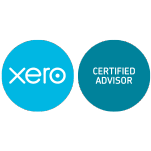
The Government has introduced a Bill into Parliament that will limit taxpayers’ ability to claim a tax deduction for costs associated with mixed-use assets, i.e. assets that are used both privately and rented to third parties, for example baches and boats. When enacted, the new rules will apply from 1 April 2013. The new rules apply to an asset used partly to derive income and partly for private use if it is:
- not used for at least 62 days in an income year,
- is land or an asset with a cost of more than $50,000,
- held by an individual, partnership, trust or close company, and
- not a motor vehicle, or an asset whose expenditure is apportioned for tax purposes on the basis of floor area, etc.
“Private use” is defined as use by the owner or an associated person or use by a third party for less than market value. Broadly there are three categories of costs:
- costs that provide a solely private benefit that are not deductible,
- costs that provide a solely income earning benefit that are deductible, and
- the balance that is apportioned between the period the asset is used to derive income and the period it is used privately, as per the formula below:
Income earning days are defined as the days in which the asset earns a market value rate of income or above. All other days the asset is in active use are classed as private days (i.e. when the asset is in use by the owner or if it is rented out at below market rate). For example, if a taxpayer’s holiday home is rented for five weeks and used privately for five weeks then the costs, which provide neither a wholly private or income earning benefit, are 50% deductible.
Additional complexity does exist as there are specific rules around the apportionment of interest costs on borrowing and GST.
Losses are unable to be offset against other income and are instead offset against future income from the asset, if the gross income derived from renting the asset to non-associated third parties is less than 2% of:
- in the case of land, the latter of either the most recent rating valuation or cost at acquisition, or
- for other property, the cost of the asset to the taxpayer.
Taxpayers will also have the ability to opt out of the rules if the income from an asset is less than $1,000 in an income year. If a person opts out of the rules the income is treated as exempt income and not subject to tax.
With 1 April 2013 not so far away, it would be prudent to think about how these rules may apply to any mixed-use assets you own and what record keeping processes you may need to introduce.


